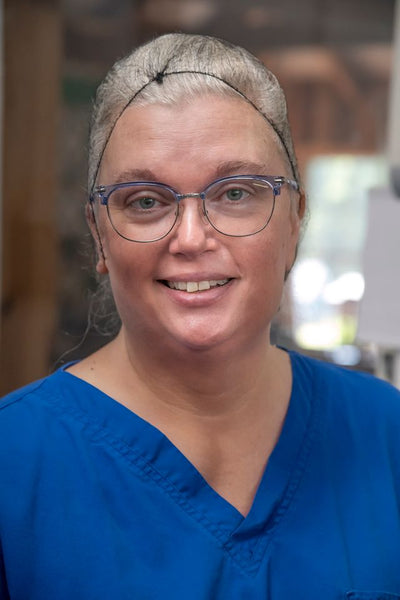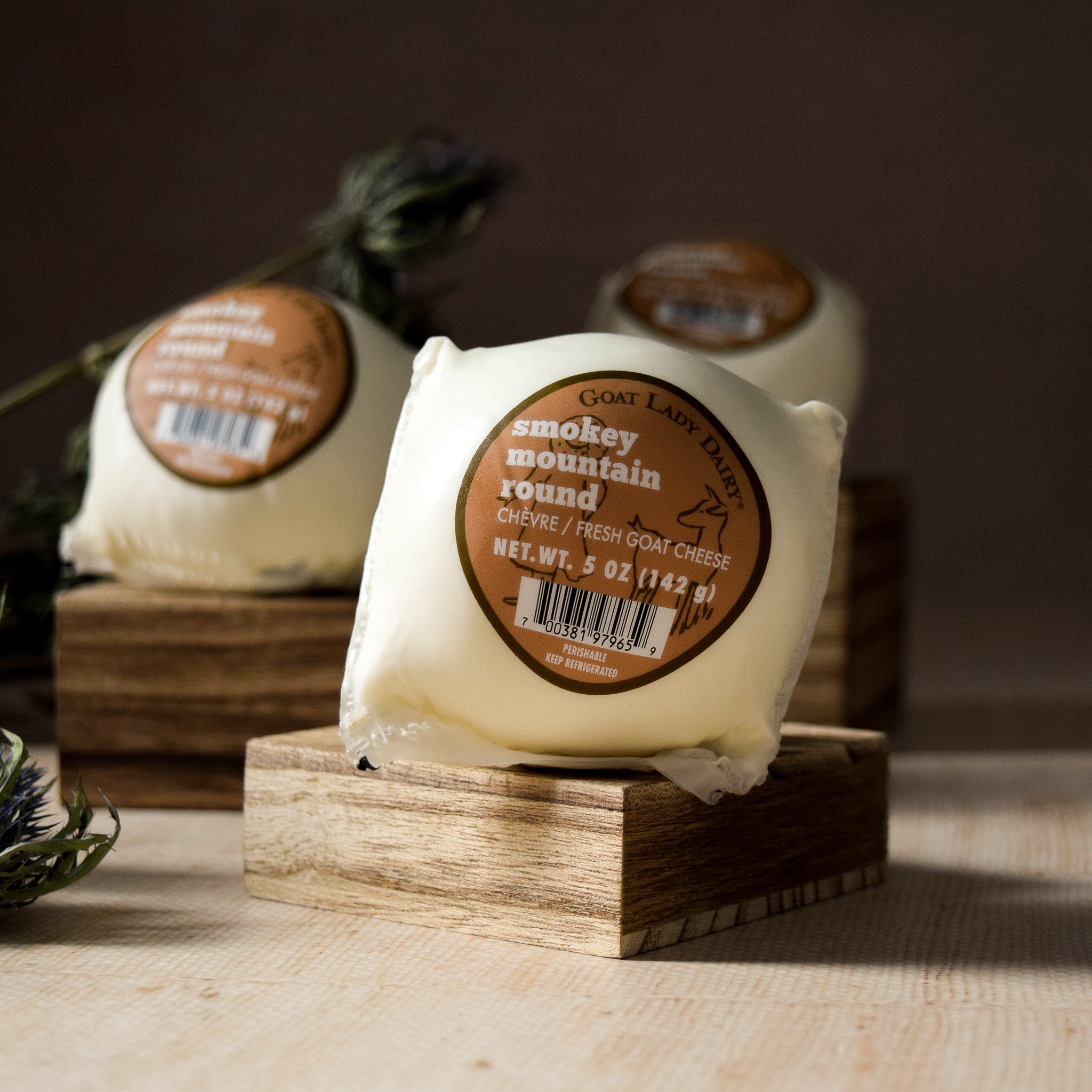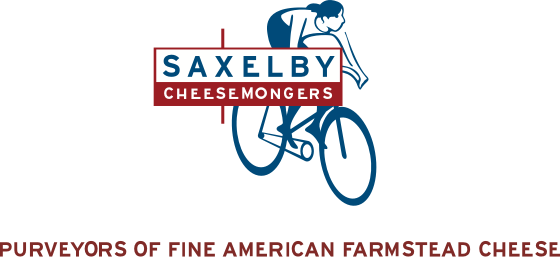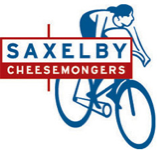
Carrie Routh Bradds and her husband Bobby live in a log cabin built in 1780. According to old family records, her great-great-great-grandfather Joshua Routh lived in the same dwelling back in 1816. Their families have been farming in the Grays Chapel area of North Carolina since the 1740s. Suffice it to say, Bradds takes the long view on family farming. "We didn't buy this farm for our children—it was more for our grandchildren," she says.
The Bradds are owners of Goat Lady Dairy, where they make a half dozen goat's and cow's milk cheeses, including the petite creamy Snow Camp, the ash lined Sandy Creek, and the surprising Smokey Mountain Round. That last one is a fun twist on typical chevre; the fresh cheese is cold smoked over apple wood, imbuing it with a robust and toasted flavor that complements its mineral twang. If you're a fan of tart and lactic goat's milk cheese, this 29-year-old creamery should be on your radar.

Ginne Tate was the original goat lady, and in 1995, she, her brother Steve, and his wife Lee began the arduous project of converting a 200-year-old tobacco farm into a functioning dairy and farmstead creamery. Tate was one of several "goat ladies" across the US who kicked off the American artisan cheese revolution, starting in the 1970s. Goat's milk cheese was exotic stuff back then, and even in the '90s, small farmstead goat cheese creameries were as much passion projects as viable businesses. But Tate wanted to prove that traditional farming and cheesemaking played an essential role in a modernizing world, and in 2003, the farm entered into a conservation easement with the local Piedmont Land Conservancy to ensure the land would be used for agriculture in perpetuity.
The Tates commissioned Bradds's father Tommy Routh and her husband Bobby to build out the creamery, and when the farm started doing dinner events for the local community, they hired Carrie to wash dishes and fill in for a recently departed intern. Bradds was a quick study, and by the early 2000s, she was running most of the cheesemaking by herself. "I was raised by parents who worked hard for everything," she says. "The Tates saw that and decided to keep me on."

Ginnie Tate died in 2009, and Bradds "came to understand that if we didn't buy the farm, no one else would." A full herd and a specialized goat's milk creamery was a tough sell for a buyer who didn't see the business as a labor of love, and the conservation easement that protected the farm's agricultural use also made it difficult to obtain financing to buy the property. "I loved Goat Lady Dairy and didn't want it to end," Bradds explains, so she and Bobby took out the loans they could to continue the farm's mission. In 2012, they made the difficult decision to relocate their herd of 70 goats to a nearby farm and focus solely on cheesemaking. An extensive renovation quadrupled the creamery's production capacity, giving them room to scale up cheesemaking to a level that could ensure the business's future. Today, their herd of goats has grown to 500, and the creamery can make up to 480 wheels of Sandy Creek a week, and 1,200 pounds of fresh chevre.

Goat Lady Dairy remains a family affair. Bobby makes cheese with his son in law Uriah, and Carrie oversees operations with her youngest daughter Cassie and her sister in law Mary. Her father Tommy, now in his 70s, still hauls milk from the herd at Snow Camp to the creamery, and cow's milk comes from nearby Williams Dairy, a fifth generation family farm that was previously on the verge of going out of business because of the low price of commodity milk. Five of the Bradds' grandchildren spend time at the farm before and after school, including one child that Bradds homeschools. And even the unrelated staffers—Jesse in the cheese room, Morgan in operations—are treated as kin. The Bradds took out additional loans during the pandemic to keep staff paid when most of their sales dried up overnight. Bradds is proud to say that everyone is paid on salary as opposed to hourly. "During the winter that means fewer hours, but everyone has the same bills to pay," she says.
Even with a commercially successful operation, family farming and small scale cheesemaking are increasingly difficult in an economy dominated by industrial producers. But after years of pandemic related hurdles, the Bradds are optimistic that 2024 should see a return to form for Goat Lady Dairy. "It'll definitely go on," Bradds says of the creamery. "Without a doubt."
Try Goat Lady Dairy's amazing cheese for yourself!
Creamery photos courtesy of Goat Lady Dairy.

